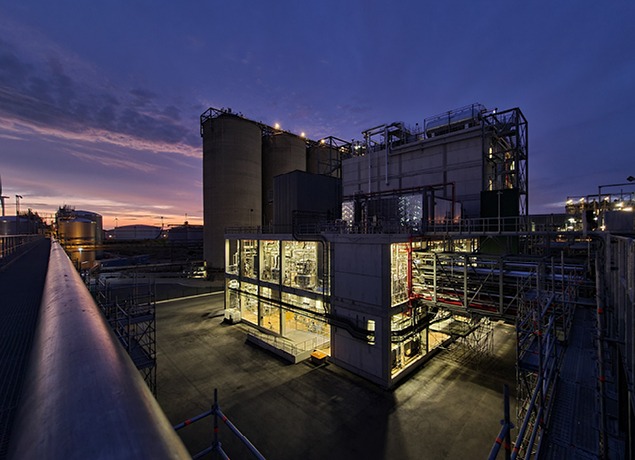
are specially designed to convert even challenging raw materials such as animal fats, used cooking oils, trap greases, and vegetable oils into high-quality biodiesel. The technologies can process all kinds of feedstock containing between zero and 99 percent free fatty acids (FFA). The quality of the biodiesel produced exceeds the most stringent quality standards in accordance with EN 14214 and ASTM D6751. We design and build customized biodiesel plants offering maximum feedstock flexibility for our customers and modify existing plants to augment their efficiency and sustainability.
No limits on FFA content in raw material
Process does not generate new waste streams
Global player in international industrial plant engineering

The BDI multi-feedstock process can convert a wide range of raw materials such as animal fats, used cooking oils, trap greases, and vegetable oils into high-quality biodiesel that exceeds the highest quality standards. Flexibility in terms of the raw materials used, maximum yield, low operating and maintenance costs, and the renowned reliability of our biodiesel plants guarantee the maximum possible cost-effectiveness.
With the fully continuous RepCAT® process, BDI has developed biodiesel technology for processing waste-based raw materials consisting of up to 99 percent free fatty acids (FFA). The use of a heterogeneous catalyst that is recycled and recirculated back into the process is the key to maximizing the efficiency of this technology. Another advantage of this process is the recovery of salt-free, distillate-quality glycerin as a by-product.
Producers of biodiesel face numerous challenges when attempting to give their plants an economic edge. However, off-the-shelf solutions designed to improve individual parameters such as yield, product quality, or feedstock flexibility prove ineffective. With the BDI Retrofit program, entire existing biodiesel plants are upgraded to the state of the art with the latest technology. To achieve optimum results, it is necessary to develop an individual master concept for each plant in order to implement the best possible technical solutions.


Don’t miss out on anything and subscribe to our Newsletter!
By registering, I agree to the terms of use and the privacy policy.